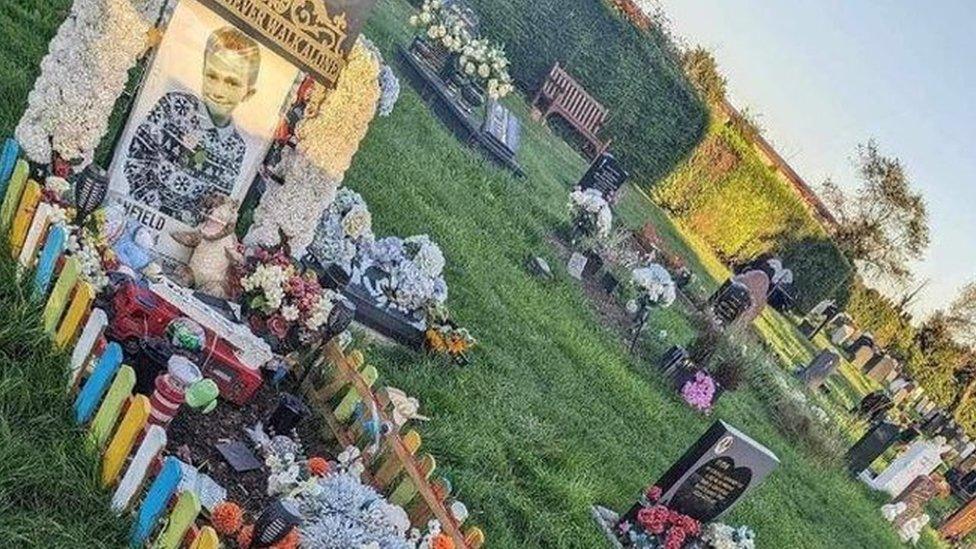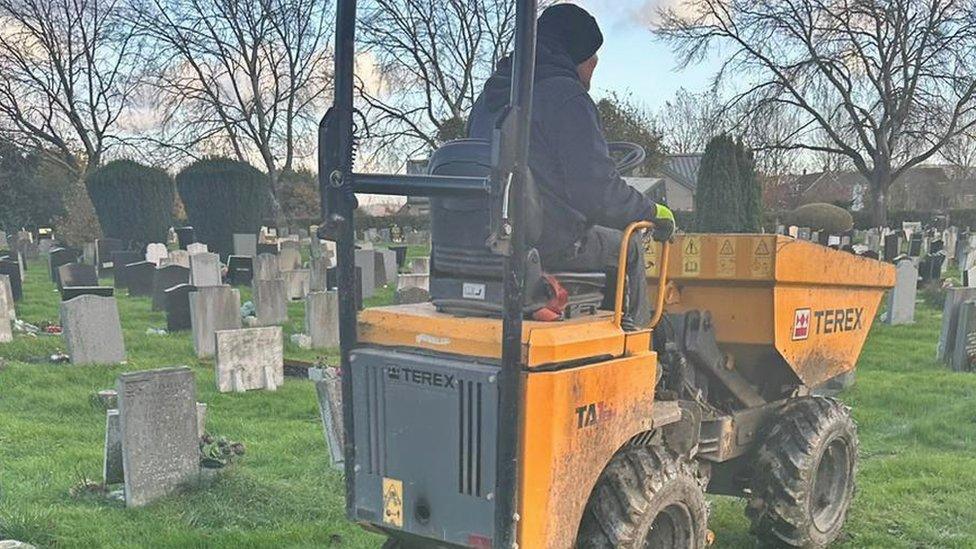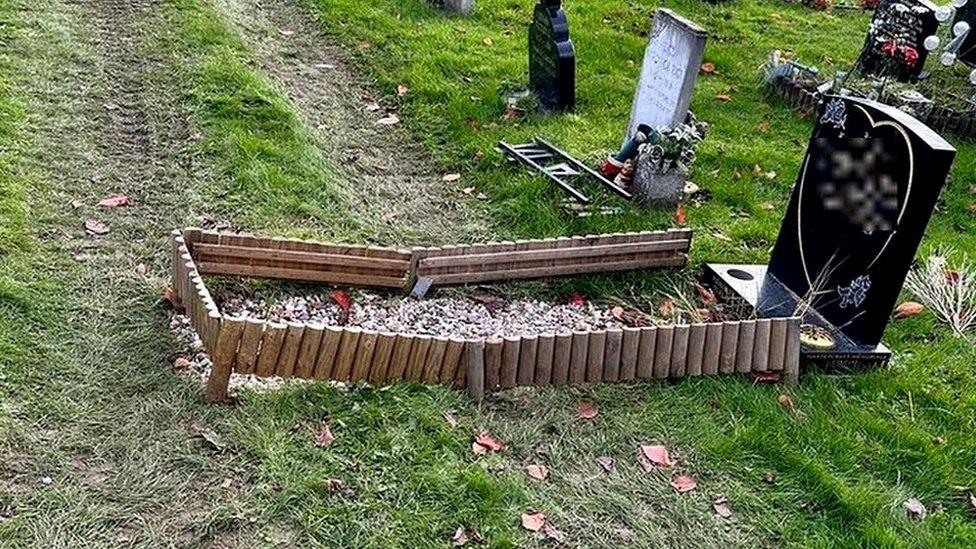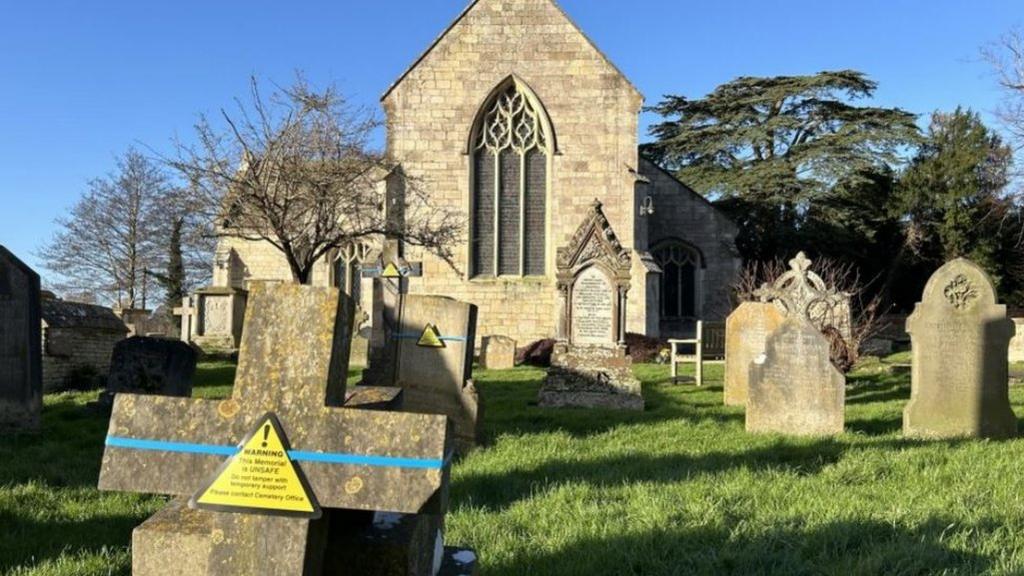Gloucester mum told to remove colourful fence on son's grave
- Published

Gloucester City Council has ruled that wooden or plastic fencing is still not allowed
A mum will have to remove a decorative fence placed around her son's grave in Gloucester Cemetery after a review of cemetery rules.
Sharna Andrews from Tredworth was told to remove the small fence, painted by her daughter, by Gloucester City Council (GCC) last year.
Her seven-year-old son Harry-Lee Andrews-Tomlinson died in 2022 after suffering a severe asthma attack.
Cabinet approved the review of the rules at a meeting on 6 March.
Ms Andrews said she did not realise the fence would not be allowed after she "brightened up" Harry-Lee's grave, according to the Local Democracy Reporting Service (LDRS).
She branded the rules of Gloucester Crematorium, in Coney Hill, as "unfair".

Harry-Lee Andrews-Tomlinson died in 2022
Ms Andrews told GCC in November that it was upsetting to have to fight for her son's resting place as she asked for a review.
GCC agreed to undertake a review, but the new rules will still not allow plastic or wooden fences to be placed around the graves.
Ms Andrews said she has yet to be told about what it means for her son's grave.
"The fence is still on there," she said. "I assume it will have to be moved.
"I don't understand why they said they would review it when it doesn't seem they have. It's very disappointing."
The new rules allow for more affordable borders made of concrete rather than granite.
However, wooden or plastic fencing will still not be allowed as they are not as durable and are liable to be broken during work at the cemetery, the council says.

Harry-Lee's grave before it was redecorated
Performance and resources cabinet member Hannah Norman, who represents Quedgeley and Fieldcourt, said the new rules will come into effect on 1 April and should provide clarity.
"There was a request for us to look at something more affordable," she said.
"That has enabled us to bring forward the option of a concrete border but we haven't been able to go as far as sanctioning wooden or plastic fencing.
"That may be disappointing for some families but we've had to balance that with the operational demand of maintaining the cemetery."
She said that wooden or plastic material is not as durable as concrete or granite, and could break causing distress to families.
Ms Norman said the process of reviewing the rules has involved looking at all local cemeteries and churchyards.
She said Gloucester is overall more lenient on the items that can be left on the graves than some areas.

Follow BBC Gloucestershire on Facebook, external, X, external and Instagram, external. Send your story ideas to us on email, external or via WhatsApp on 0800 313 4630, external.
Related topics
- Published19 January 2024

- Published23 November 2023

- Published31 January 2024
